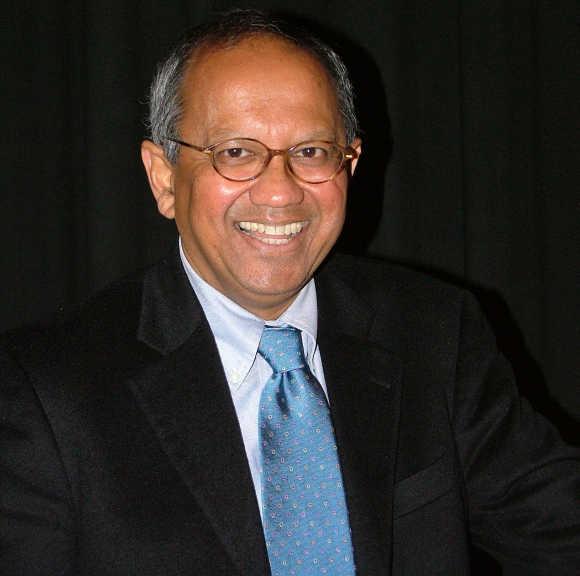
Ganguly, who is a member of the Council on Foreign Relations and the International Institute of Strategic Studies, says Indians should pursue crucial national interests as ruthlessly as the Chinese.
Fear of another Bofors happening is so great that no bureaucrat is going to swiftly approve tender for fear that they might be accused of financial malfeasance, he tells Faisal Kidwai in a telephonic interview.
Here are the excerpts:
In a widely-quoted Foreign Policy article, you have highlighted some that issues that could hold India back from becoming a superpower. The first problem area you have focused on is the economy.
That's because policy making is adrift at the moment and foreign investors are loath to invest in the country, plus they have destinations that are more transparent so, consequently, India will be the loser.
Then there are the series of scams that have broken out, starting with 2G and coal procurement, and the apparent inability of the political elite to act decisively against the perception of widespread corruption in high places.
So, both of these factors are inhibiting foreign investments and thereby hurting India's prospects. It's very easy to say, well, there's a global economic downturn, Europe is in disarray and that's why we are not doing well. But that, I think, is a dishonest answer.
Much as I respect [Prime Minister] Manmohan Singh, I disagree with him on this because, as a superbly trained economist, he should know that India is not an export-led growth economy. And although India is much more globally integrated today than it was in 1991, the principal impetus for growth doesn't come from export. Major export sectors are services and, yes, they've been hurt to some degree, but that's not the whole story.
The real issues are domestic. Lack of transparent regulatory and investment climate; the massive subsidies that are bleeding the country and also contributing to budget deficit; the poor and uneven quality of infrastructure; lack of decent aviation policy, with continuing subsidies to Air India, even though it shows no capacity to discipline itself - all of this is having a sandbagging effect on the economy.
...
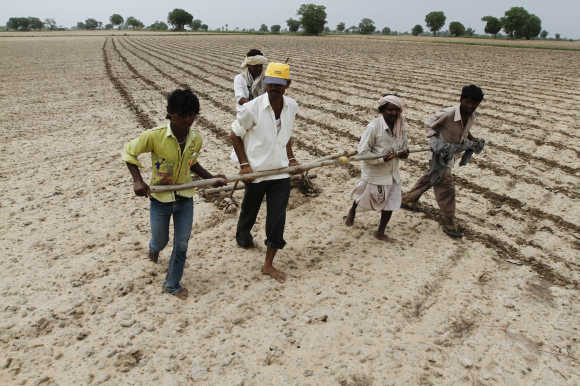
What are the reasons for this sorry state of affairs?
There's lack of leadership and inability to manage coalition partners. West Bengal Chief Minister Mamata Banerjee hasn't been helpful on a number of issues, but the task of leadership is to manage these kinds of differences. Political differences in a vibrant democracy like India are inevitable, particularly when there's a coalition government, where coalition members are going to be moved by the particular interests of their constituency. But the real genius, talent of political leadership must be to find ways around these issues.
A very senior administrator in West Bengal told me not long ago that, 'Look, how many times Manmohan Singh has flown down to the state to talk to Mamata Banerjee? Had he flown down to talk to a somewhat unwilling soul, then perhaps she might have been more willing to cooperate'.
The lack of cooperation with allies in parliament is simply striking.
...
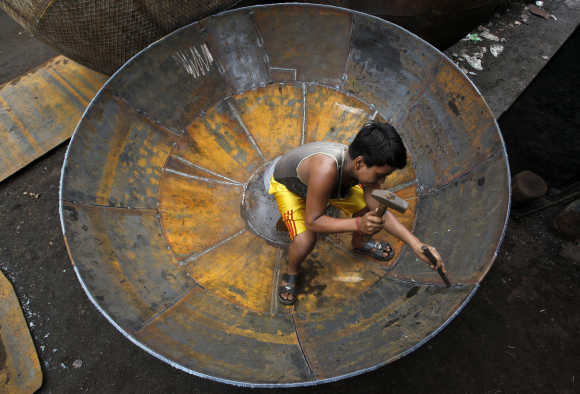
Do you see the situation improving?
One keeps hearing from the prime minister that he understands that the economy is slowing down, that he understands that there are anxieties, that he intends to take important decision, but until there's concrete action, one will wonder whether the country will continue to drift and whether people will continue to suffer.
It's a tragic commentary on a country that has no dearth of talent, no dearth of ideas and entrepreneurship. But none of these things can thrive unless there are transparent policies and proper incentives.
...
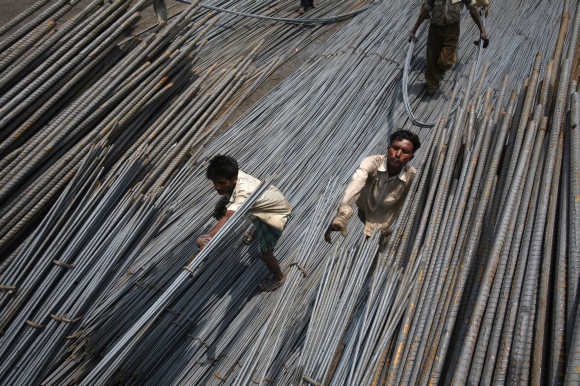
In that article, you have said that China is way ahead of India when it comes to securing international oil and gas contracts. Why is India falling behind?
The Chinese are more adept and ruthless in their pursuit of national interests. They are very clearly focused on what their goals are, they have - for most part - consensus on how to pursue these goals. Now, there are admittedly differences between the more hardline elements and the Chinese foreign ministry, but in terms of critical goals, there's substantial consensus and they pursue these goals with considerable vigour.
Unfortunately, one fails to see the emergence of similar consensus and agreement that there are certain critical national interests that should be pursued regardless of ideology and regardless of party politics and, much to the country's detriment; I don't see that happening in India.
...
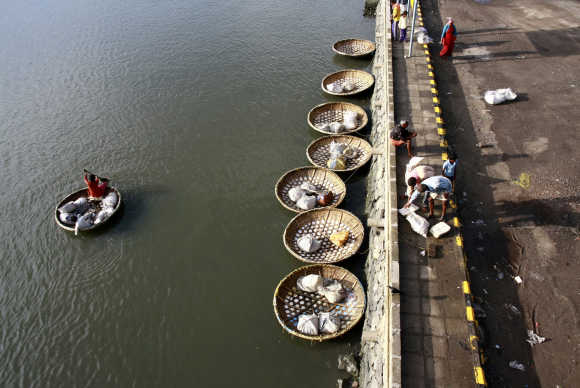
You have also said that tensions with Pakistan will increase over Afghanistan.
Absolutely. There's no question about it. Pakistani military elite is determined to undermine India's position in Afghanistan. Part of it is fantasy and paranoia that India plans to sandwich Pakistan between Afghanistan and itself and part of it is simply long-standing anxiety that exists about a much powerful neighbour which, despite all the problems that I've outlined, is doing much better than Pakistan on every dimension.
Consequently, there are anxieties about India, but these anxieties are deliberately exaggerated by the military establishment, which wants to protect its extraordinary privileges and wants to maintain its position of superiority in Pakistan. One way to maintain all this is to highlight the threat from India and to say that India is interested in encircling Pakistan.
If Pakistan were to give up supporting terror in Kashmir, I doubt that India would be as concerned about having a strategic bridge in Afghanistan. India would still have friendlier relations with Afghanistan and try to promote economic development and would, obviously, prefer not to see return of Taliban.
But India would not be so aggressively pursuing strategic relations with Afghanistan, were it not for the fact that Pakistan remains passionately committed to the return of Taliban-like regime, which would be definitely detrimental to India's interests and interests of many other world powers.
...
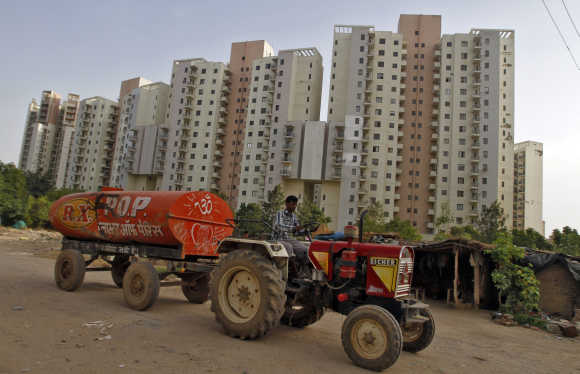
You have said that the United States shouldn't bet that India will be its useful ally. Why aren't you hopeful about India forging strong ties with the US?
New Delhi is still debating what kind of relations it should have with Washington and the debate is still not settled yet. There are number of constituencies who have different visions of what constitutes stable relationship with the United States.
Until that debate is resolved, and it's appropriate that such kinds of debates should take place, but it's time that India try and settle the internal debate and decide what kind of relationship suits India. But until the dust settles, there will be turbulence in India-US relationship.
...
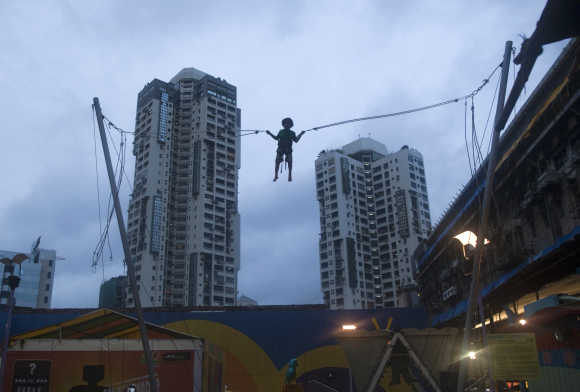
You have criticised the defence acquisition process. What are the major issues that are hampering India's military?
Defence acquisition process remains antiquated, is extremely slow and so it takes India too much time to acquire requisite military hardware. The military is often frustrated with the slow pace of acquisitions.
But the fear of another Bofors happening is so great that no bureaucrat is going to swiftly approve tender for fear that they might be accused of financial malfeasance and then there's the defence minister who, I think, is inherently cautious. He's a decent and honest man, but he's a slow and rather deliberate decision maker, which complicates matters further.
...
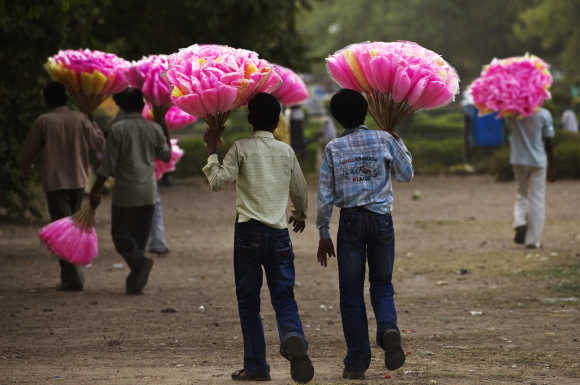
Another area that you have focused on is the Hindu-Muslim issue. Many say that the BJP is trying to shed its right-wing image. How do you view this issue?
I'm not hopeful because if you see the language BJP uses, if you see who the BJP made its president, if you see the fact that someone like [Gujarat Chief Minister] Modi can be seriously considered as a possible prime minister, then you have to remain anxious about Hindu-Muslim relations.
Some experts have pointed out that there has been a steady decline in communal clashes since the BJP left the office at the centre, but that doesn't convince me that the pernicious ideology that certain members of BJP, and particularly RSS, still adhere to exists and they haven't departed from the unpleasant vision of India.
So, one must maintain a certain vigil because the last thing India needs is any kind of communal violence. Hatred towards minorities is not a recipe for social stability of India, leaving aside the moral issue.
...
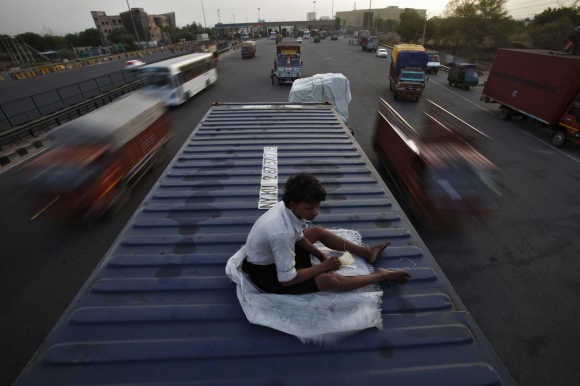
But Modi's supporters claim he is a superb administrator and cite the investments the state has attracted in recent years.
There have been reports that show that despite the steady inflow of both foreign and domestic investments into Gujarat, the state isn't doing that well in terms of poverty elevation and access to healthcare.
Its social statistics don't bear out to Modi's claims. Yes, he may be wonderful administrator when it comes to attracting investments, but who this investment is benefitting? Is the growth in Gujarat trickling down to significant segments of the population? And it might be interesting to disaggregate these statistics by caste and religion to see how certain disadvantaged groups and minorities are faring in Gujarat.
It's very easy to look at aggregate statistics, but these figures should be broken down to see how particular communities are faring.